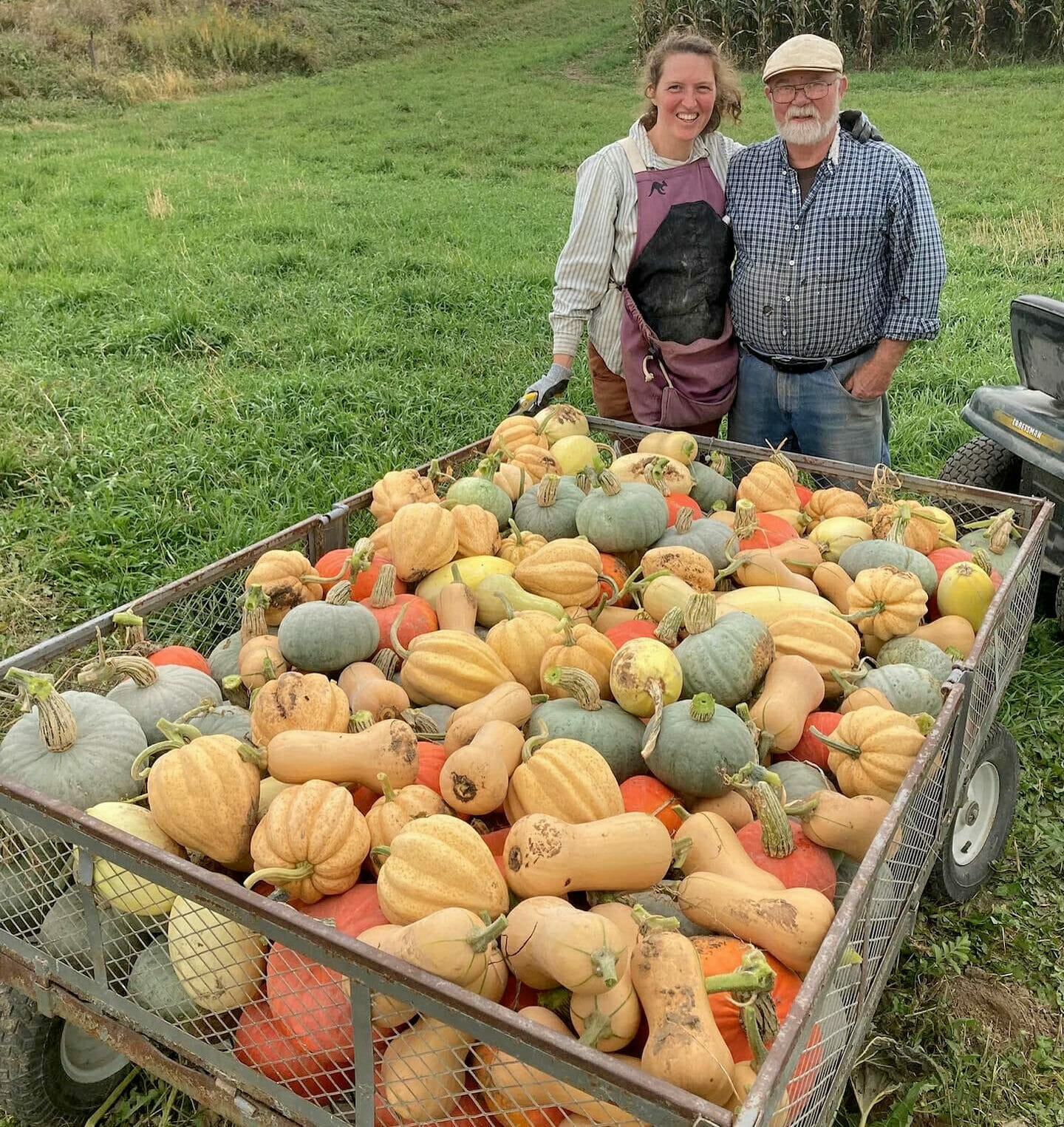Partnering to Expand Local Foods
In June 2022, Iowa’s local foods landscape received a significant boost from the federal government. Earlier in the year, the state had applied for, and received, $2.7 million to establish a potentially transformative program: the Iowa Local Food Purchasing Assistance Program.
The money came from a new U.S. Department of Agriculture initiative, the Local Food Purchase Assistance Cooperative Agreement Program, or LFPA. Iowa also received $2.2 million from a sister USDA grant, the Local Foods for Schools program, which funded local food purchases for K-12 schools. Both programs offered an unprecedented pool of funds – $400 million for LFPA and $200 million for LFS – to help states strengthen local and regional food systems, support local and socially disadvantaged farmers and build partnerships with local food distributors.
They were also unique in directly funding food purchases. Aware of the rare opportunity, Practical Farmers and several partners – including Iowa Valley RC&D, Iowa State University Extension and Outreach and others – teamed with Iowa Department of Agriculture and Land Stewardship, the state agency authorized to apply, in drafting Iowa’s application and implementing the programs.
Partnering for Success
These partnerships were key to our success. To bring the LFPA to Iowa, we needed to convince the USDA that Iowa could procure, distribute and track all that food at a statewide scale. If funded, we’d then need to develop systems and protocols to manage this volume of product, ensure the funds flowed to local foods and build a database capable of tracking all that complexity.

Natasha Hegmann, left, of Turkey River Farm in Elkport, Iowa, poses with Paul Young. Natasha and her husband, Pete Kerns, partnered with Paul to grow squash for the food shelf through the Iowa Local Food Purchasing Assistance Program in fall 2022, and they are expanding production this year to sell through the program.
The task seemed daunting, but we tackled it with resolve. The visioning process started during our regular Food Hub Managers Working Group meetings, led by Iowa Valley RC&D. These meetings included Giselle Bruskewitz, program director for Iowa Valley RC&D; Teresa Wiemerslage, a local food specialist with ISU Extension and Outreach; myself for PFI; and representatives from Iowa food hubs. Soon, we were sharing those ideas with Tammy Stotts at IDALS. Collaboration grew as the Iowa Food Bank Association and the Meskwaki Nation joined the conversations.
A year later, we’re all still working together on the programs. As the award recipient and fiscal agent, IDALS oversees the funding. Iowa Valley RC&D manages the program, which includes tracking purchases and supporting participants and distributors. Food hubs and food banks across the state help procure and distribute local foods raised in Iowa or counties that directly border it. The Meskwaki Nation distributes food to its community members. Iowa Department of Education also plays a key role in connecting schools to the LFS, while Teresa provides technical assistance to schools and food hubs.
PFI’s Role and What’s Next
For our part, PFI has been working to connect farmers to the program and ensure it centers producer needs. Last summer, we sought feedback from farmers across the state. That input led the partners to create fair pricing guidelines and more innovative ways to include farmers at different production scales. PFI also helped build the database and systems to manage farmer participants and track program outcomes.
In May, IDALS received an extra $2.9 million from USDA’s Commodity Credit Corporation to extend Iowa’s LFPA through May 2025. With the LFS funds factored in, the boost means $7.8 million for local foods work in Iowa. While we’re excited about that investment, we’re also looking beyond 2025. Our hope is to build staying power for the new relationships and markets forged through these programs – we’ve already seen just how transformative they can be.
Kayla Koether is the senior farm viability manager for PFI. Learn more about Iowa’s LFPA and LFS programs, or register to be a local food vendor at iowalfpa.org/producers.
